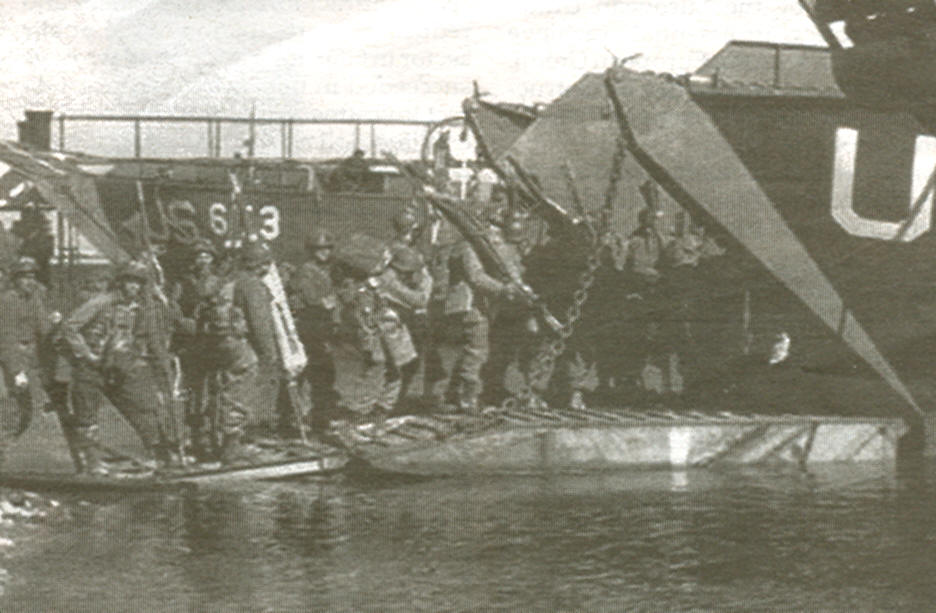 |
|
|
U.S. Commandos in World War II Occupied Greece to be Honored by Hellenic National Defense General Staff at Greek Embassy |
|
The Hellenic National Defense General Staff will honor the Greek-American veterans of United States commando units, who served behind enemy lines and fought alongside Hellenic Armed Forces in occupied Greece during World War II, in a special ceremony at the Greek Embassy on November 19 on the occasion of the Greek Armed Forces Day. The event, which also acknowledges the role of the American Hellenic Institute in bringing much-deserved attention to these brave Americans, is being organized by the Defense Section under the auspices of the Embassy of the Hellenic Republic in Washington, D.C. A dinner in honor of the veterans will be held on November 18. |
|
Recognition to these American heroes came late. With their mission completed, they were withdrawn from Greece at the end of 1944 and officially disbanded a year later. Records of their actions were sealed for forty years. Having operated autonomously and formally under Allied command, their war record was not fully recognized, with U.S. Army separation papers often not mentioning ground combat in Greece. Some never learned that they had been awarded a Presidential unit citation. |
 |
|
In 2005, a commemorative monument designed by sculptor Andrew Saffas was unveiled in Athens in the presence of the Minister of National Defense. Two veterans have published memoirs, while there is growing scholarly and general interest as National Archives records are made available. Over twenty veterans and others who contributed to making their story known are expected to attend the special event and Greek Armed Forces Day reception at the Embassy that follows up on the statue-unveiling ceremony in Greece. History World War II involved the first U.S. experience with clandestine commando warfare. Under a classified plan developed by the Office of Strategic Services (OSS), precursor of the CIA, small “Operational Groups” (OGs) of specially trained U.S. Army infantrymen of various ethnic backgrounds — Greek, Yugoslav, Italian, French, and Norwegian — were infiltrated into occupied Europe to assist local partisan groups in resisting the Nazis. Among these OGs were more than two hundred bilingual Greek Americans. Their mission was to work with the andartes, the Greek partisans, to make the Nazi withdrawal from Greece in 1944 as costly as possible. At the time, the OGs' brand of warfare was unique in the history of American arms. They learned special commando tactics at the OSS's secret training center on the grounds of the Congressional Country Club in Chevy Chase, Maryland, and received demolition training at another clandestine facility in Hagerstown, Maryland. Beginning in April 1944, they were inserted by night into Greece from Italy, either by boat or air drop. They then walked through the mountains to their operational bases. Once in place, they could not expect reinforcements, tactical support, or medical aid. They had no withdrawal route and were expected to remain in Greece indefinitely, living off the land and moving around on foot. They punched far above their numbers and succeeded far beyond expectations, making 76 deadly strikes against the withdrawing Germans, on average about once every three days, killing or wounding over 1,800 enemy and blowing up miles of roads, track, and bridges. Their effectiveness can be judged by the severity of the German response. Even though the OGs deployed in uniform, an illegal Wehrmacht order directed that they be slaughtered to the last man if captured. The OGs' presence was a great morale booster for the andartes. OGs were the close-assault troops in operations by Greek partisans and contributed greatly to their success against occupation forces. |
|
|
(Posting date 26 December 2007) HCS encourages readers to view other articles and releases in our permanent, extensive archives at the URL http://www.helleniccomserve.com/contents.html. |
|
|
|
|
2000 © Hellenic Communication Service, L.L.C. All Rights Reserved.
http://www.HellenicComServe.com |
|
